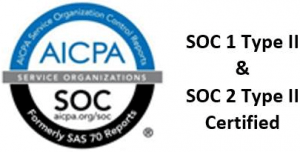Your Roadmap to Success
Think of business credit as your company’s financial report card. A good score can open doors to better loans, lower insurance rates, and sweeter deals with suppliers. A not-so-great one? Well, that can make growing your business feel like trying to run a marathon in flip-flops.
Building a strong business credit profile is one of the smartest moves you can make for your company’s long-term health. It’s not just about borrowing money; it’s about building a reputation for financial responsibility that partners, vendors, and lenders will notice. This guide will walk you through exactly how to build business credit, turning what seems like a complex process into a clear roadmap for success.
Why Business Credit Is a Big Deal
So, why all the fuss about business credit? Unlike your personal credit score, which is tied to your Social Security number, your business credit score is linked to your company’s Employer Identification Number (EIN). This separation is crucial.
A solid business credit history can significantly influence:
- Loan Applications: Lenders heavily weigh your business credit score when deciding whether to approve loans, lines of credit, or business credit cards. A higher score often translates to better interest rates and more favorable terms.
- Insurance Premiums: Believe it or not, insurers often look at business credit to gauge risk. A better credit profile can lead to lower insurance rates, saving you money.
- Vendor and Supplier Relationships: A strong credit history shows potential partners that you’re reliable. This can help you negotiate better payment terms, like paying invoices in 30 or 60 days instead of upfront, which is a huge win for managing cash flow.
In short, good business credit makes your business more attractive and resilient.
First Steps: Laying the Foundation
Before you start building credit, you need to make your business official in the eyes of the financial world. This gives your business its own financial identity, separate from your own.
1. Incorporate Your Business
First things first, make it legal. Register your business as a separate legal entity, like an LLC or a corporation. This is a critical step because it creates a legal distinction between your personal finances and your business’s finances. You can usually handle this through your state’s Secretary of State website.
2. Get Your EIN
Next, apply for an Employer Identification Number (EIN) from the IRS. It’s free, and you can do it online in minutes. Your EIN is like a Social Security number for your business. You’ll use it for everything from filing taxes to opening a business bank account.
3. Open a Business Bank Account
With your business legally formed and your EIN in hand, open a dedicated business bank account. This is non-negotiable. Mixing personal and business funds is a recipe for accounting headaches and can pierce the corporate veil that protects your personal assets. All business income and expenses should flow through this account.
How to Build and Maintain a Stellar Credit History
Once your business has its own financial identity, it’s time to start building a positive credit history. This process is a marathon, not a sprint, and consistency is key.
Start with Vendor and Supplier Credit
One of the easiest ways to start building business credit is by opening trade lines with your vendors and suppliers. Many companies, from office supply stores to equipment providers, will extend credit to businesses and report your payment history to business credit bureaus like Dun & Bradstreet, Experian, and Equifax.
Ask your suppliers if they report payments. If they do, always pay your invoices on time or even a little early. This consistent, positive payment history is the bedrock of a strong business credit score.
Get a Business Credit Card
Applying for a business credit card is another excellent step. Use it for regular business expenses and pay the balance in full each month. This demonstrates responsible credit management. Look for cards that report to the major business credit bureaus. Initially, you might need to provide a personal guarantee, but as your business credit grows, you can secure credit based solely on your company’s financial strength.
Make Payments on Time, Every Time
This can’t be stressed enough. Payment history is the single most important factor in your business credit score. Late payments can do significant damage and take a long time to recover from. Set up automatic payments or calendar reminders to ensure you never miss a due date for any of your bills, whether it’s to a vendor, a credit card company, or a lender.
Time to Apply: Getting Your First Business Loan
With a solid foundation and a history of on-time payments, you’ll significantly improve your chances of securing a business loan or line of credit. Lenders value consistency and reliability, so demonstrating a strong financial track record can make a big difference in your application process. Before you take the next step, it’s essential to get your financial house in order. This means reviewing and organizing your financial statements to ensure accuracy and clarity. Lenders will not only assess your current financial health but also your ability to manage future obligations.
Additionally, having a clear, well-thought-out business plan is crucial. This plan should outline your business goals, strategies for achieving them, and how this funding will play a role in your growth. It’s important to include realistic projections, market analysis, and key performance indicators that show your preparedness and commitment to success.
Equally important is providing a detailed explanation of how you intend to use the funds. Whether it’s for expanding your operations, purchasing equipment, or increasing working capital, lenders want to see that their money will be put to good use in a way that benefits both your business and your ability to repay the loan. By taking these steps, you’ll present yourself as a trustworthy, well-prepared borrower and increase your chances of getting the funding you need to grow your business.
Keep an Eye on Your Credit
Building business credit isn’t a “set it and forget it” task. You need to monitor your credit reports regularly to ensure the information is accurate and to watch for any signs of fraud.
You can get copies of your business credit report from the main credit bureaus:
- Dun & Bradstreet
- Equifax
- Experian
Reviewing these reports at least once a year helps you catch and dispute any errors that could be dragging your score down.
Level Up with Professional Credit Reporting
Managing your accounts receivable and ensuring your customers pay on time is another side of the credit coin. After all, your ability to pay your bills depends on your customers paying theirs. When internal collection efforts aren’t enough, or if you want a clearer picture of your customers’ financial health, partnering with a professional agency can be a game-changer.
This is where a firm like Altus Commercial Receivables comes in. Hiring an agency for business credit reporting services offers several advantages:
- In-Depth Insights: Altus provides comprehensive Business Credit Reports that give you a clear view of a customer’s or potential partner’s financial stability, payment history, and overall creditworthiness. This knowledge helps you reduce risk and make smarter decisions about extending credit.
- Informed Decision-Making: With detailed Asset & Liability Reports, you can get a full picture of a debtor’s financial situation. This data-backed insight helps you understand recovery potential and decide on the best course of action.
- Protecting Your Cash Flow: By vetting new customers and monitoring existing ones, you can proactively manage your accounts receivable, minimize bad debt, and maintain a healthy cash flow, which in turn helps you maintain your own excellent business credit.
Using these services empowers you to build stronger, more secure business relationships and protect your bottom line.
Your Path to Financial Strength
Learning how to build business credit is a journey that requires diligence, strategy, and patience. By establishing your business as a separate legal entity, managing your payments responsibly, and monitoring your credit, you create a powerful asset for your company. A strong credit profile not only provides access to capital but also enhances your reputation and opens doors to new opportunities for growth. Start taking these steps today to build a financially sound future for your business.
Ready to strengthen your business credit and protect your cash flow? Contact Altus today to get expert support.







